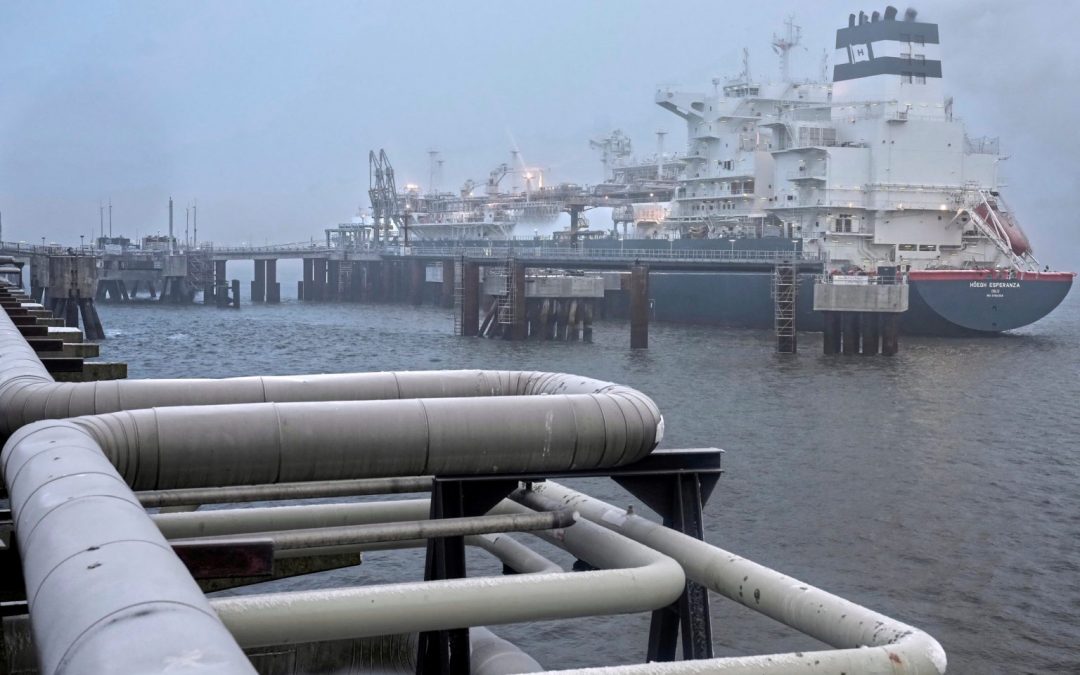A long-term US ban on issuing new LNG export permits would have “quite an impact” on the global LNG market, forcing buyers to look elsewhere for needed supply, a senior Shell executive said Feb. 14.
The White House on Jan. 26 announced an “pause” on permits issued by the US Department of Energy authorizing projects to export LNG to countries that lack free-trade agreements with the US, representing most of the global LNG import market. The DOE has not specified a timeframe for the election-year suspension, saying it would last until the DOE can update how it considers impacts of LNG exports on climate change, the US economy, and national security.
“The impact of the ban will be very much driven by the duration of the ban,” Steve Hill, executive vice president for Shell Energy, said during a call with analysts about Shell’s annual LNG outlook.
The limited near-term impacts of the White House permitting freeze, which primarily affect proposed projects yet to advance to construction, have not altered the LNG giant’s global supply forecast.
Hill said the permitting hold “doesn’t cause the LNG market to be short in this near-term period,” citing about 100 million mt/year of export projects under construction in North America that are unaffected by the suspension and other projects with regulatory approvals that could advance to construction.
As a result of the US permitting suspension, S&P Global Commodity Insights analysts delayed their expectations of all final investment decisions on new LNG projects in the US and in Mexico, which need the DOE approvals because they would use US feedgas. The freeze puts at risk nearly 30 million mt/year of probable export capacity additions in the US and Mexico, S&P Global analysts said.
Exports from the US, which became the world’s largest LNG producer in 2023, are already on track to double by the end of the decade. And the DOE clarified over the past week that it will still review requests by US LNG developers to extend existing export licenses during the permitting freeze, although there remains significant uncertainty surrounding the application process for extensions.
Sector experts say the US permitting halt has created long-term uncertainty about the global market share of US LNG and will likely prompt trade partners to reassess associated supply risks, while long-term contracts tied to projects hit by the permitting hold will likely stall. The halt is widely expected to remain in place at least through the November presidential election.
“At some point in time, the ban would have an impact as buyers are forced to look elsewhere and there’s not as many options where else to look as people would like,” Hill said. “In summary, it’s a bad thing in principle. In practice, it’s probably OK if it’s a year or so. But if it was a long-term ban, then it would have quite an impact on the market.”
Shell’s ultimate expectation is that North America will continue grow as an LNG exporter, Hill said. The annual outlook expected North American LNG exports to grow to about 200 million mt/year by the end of the decade, accounting for about 30% of global LNG demand and about 5% of global natural gas demand. Over that time period, LNG feedgas demand will rise to become about 20% of North American gas demand, Hill said.
But that growth trajectory also stands to introduce greater North American supply risks to the global LNG industry, Hill said.
One risk that Shell worries about in the US is the concentration of export capacity on the US Gulf Coast and the ability to build the necessary pipelines to supply Gulf Coast projects, Hill said. The executive touted the diversity of Shell’s supply position in North America as a major buyer from the Gulf Coast and as the offtaker from the Elba Island LNG project in Georgia. Shell will also be the largest offtaker from LNG Canada on the Pacific Coast expected to come online later in 2024, and it has committed to being a long-term offtaker from the proposed Saguaro Energia LNG export terminal on the West Coast of Mexico.
“As it gets harder to build pipeline capacity within the US, it may get harder and harder to get the gas to the export projects, and therefore we might see bigger price spreads across the US and North America than we’ve seen in the past,” Hill said. “And again, that’s why I like our diversified position across North America.”
Source: Hellenic Shipping News





